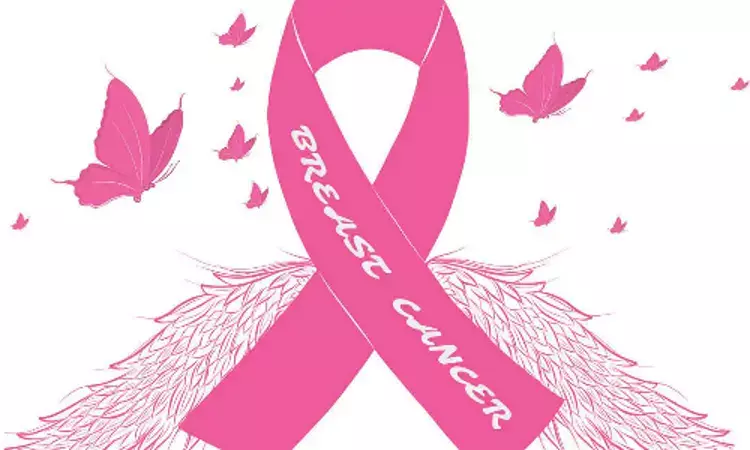- Home
- Medical news & Guidelines
- Anesthesiology
- Cardiology and CTVS
- Critical Care
- Dentistry
- Dermatology
- Diabetes and Endocrinology
- ENT
- Gastroenterology
- Medicine
- Nephrology
- Neurology
- Obstretics-Gynaecology
- Oncology
- Ophthalmology
- Orthopaedics
- Pediatrics-Neonatology
- Psychiatry
- Pulmonology
- Radiology
- Surgery
- Urology
- Laboratory Medicine
- Diet
- Nursing
- Paramedical
- Physiotherapy
- Health news
- Fact Check
- Bone Health Fact Check
- Brain Health Fact Check
- Cancer Related Fact Check
- Child Care Fact Check
- Dental and oral health fact check
- Diabetes and metabolic health fact check
- Diet and Nutrition Fact Check
- Eye and ENT Care Fact Check
- Fitness fact check
- Gut health fact check
- Heart health fact check
- Kidney health fact check
- Medical education fact check
- Men's health fact check
- Respiratory fact check
- Skin and hair care fact check
- Vaccine and Immunization fact check
- Women's health fact check
- AYUSH
- State News
- Andaman and Nicobar Islands
- Andhra Pradesh
- Arunachal Pradesh
- Assam
- Bihar
- Chandigarh
- Chattisgarh
- Dadra and Nagar Haveli
- Daman and Diu
- Delhi
- Goa
- Gujarat
- Haryana
- Himachal Pradesh
- Jammu & Kashmir
- Jharkhand
- Karnataka
- Kerala
- Ladakh
- Lakshadweep
- Madhya Pradesh
- Maharashtra
- Manipur
- Meghalaya
- Mizoram
- Nagaland
- Odisha
- Puducherry
- Punjab
- Rajasthan
- Sikkim
- Tamil Nadu
- Telangana
- Tripura
- Uttar Pradesh
- Uttrakhand
- West Bengal
- Medical Education
- Industry
Artificial light at night linked to high breast cancer risk

New York: In a warning to women living in towns and cities which are flooded with all sorts of artificial outdoor light at night, new research claim that higher outdoor light at night exposure may be a risk factor for postmenopausal breast cancer.Highest exposure was associated with a 10% higher risk of developing breast cancer during follow-up, after controlling for confounding factors.
Previous studies have reported relationships between outdoor light at night and the breast cancer risk but their findings were mixed.
In new research, published in the International Journal of Cancer, the team analysed residential outdoor light at night estimated from satellite imagery in 1996 and assessed rates of breast cancer over 16 years of follow-up in 186,981 postmenopausal women.
"The small number of studies to investigate this question have often relied on subjective exposure data and yielded inconsistent results," said study senior author Rena Jones from the National Cancer Institute in the US.
"We utilised an objective exposure measure--estimated outdoor light at night from satellite data," Jones added.
The research team looked at cases of breast cancer in women over a 16-year period and took other controlling factors into account.
Compared with the lowest level of exposure to outdoor light at night, the highest exposure was associated with a 10 per cent higher risk of developing breast cancer during follow-up, after controlling for confounding factors.
The findings also suggested that the relationship between outdoor light at night and breast cancer risk may differ by individual characteristics, such as smoking, alcohol drinking, sleep duration and BMI, and neighbourhood environment.
"In conclusion, our study suggests that higher outdoor light at night exposure may be a risk factor for postmenopausal breast cancer," Jones said.
"It will be important for future studies to accurately measure light at night exposure for individuals using a combination of objective measures, carefully designed questionnaires, and personal measurement devices," Jones noted.
For further reference log on to:
Medical Dialogues Bureau consists of a team of passionate medical/scientific writers, led by doctors and healthcare researchers. Our team efforts to bring you updated and timely news about the important happenings of the medical and healthcare sector. Our editorial team can be reached at editorial@medicaldialogues.in.
Dr Kamal Kant Kohli-MBBS, DTCD- a chest specialist with more than 30 years of practice and a flair for writing clinical articles, Dr Kamal Kant Kohli joined Medical Dialogues as a Chief Editor of Medical News. Besides writing articles, as an editor, he proofreads and verifies all the medical content published on Medical Dialogues including those coming from journals, studies,medical conferences,guidelines etc. Email: drkohli@medicaldialogues.in. Contact no. 011-43720751


